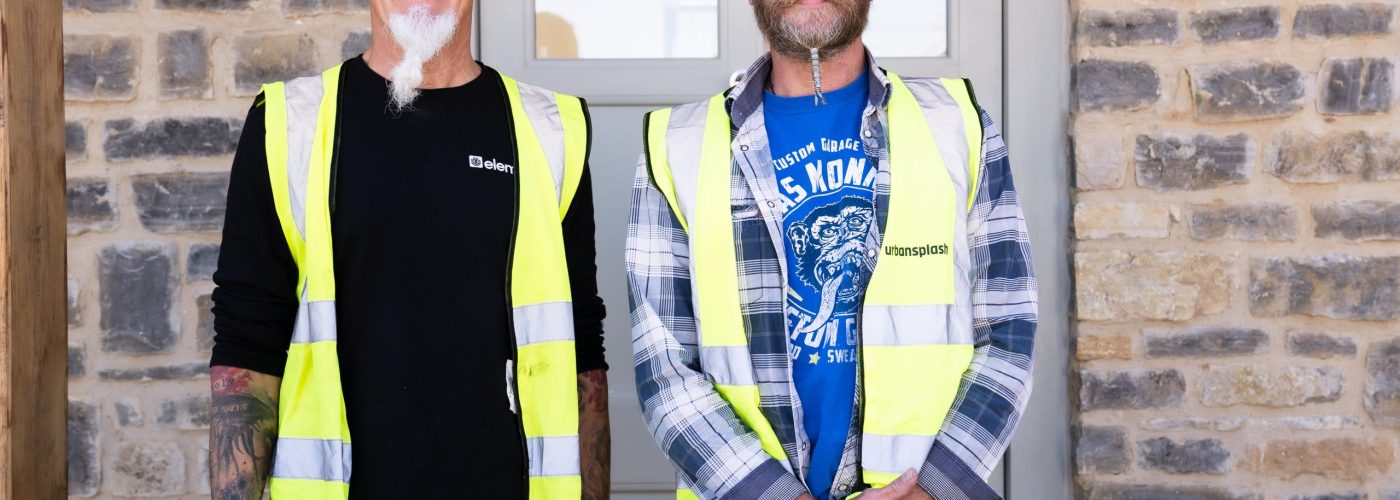Rod Davies and Nick Gander of green heating pioneers Energy Carbon give their take on COP26.
Heating accounts for nearly half the world’s energy consumption, and a third of UK carbon emissions. There’s no route to a net zero future that doesn’t involve rapidly decarbonising the way we heat billions of homes.
And yet, at the most critical climate conference in history, it barely got a mention. Frankly, we weren’t expecting it to get much of a look-in at COP26 – we’re still at the stage when governments are agreeing the speed they’re going to cut carbon, rather thanhow they’re actually going to do it.
But if we’ve got any chance of meeting the increasingly ambitious targets world leaders are setting, we need to very quickly shift to the practicalities of how we drastically cut carbon emissions.
The good – sort of
But while it’s always very tempting to write off conferences like COP as meaningless talking shops, progress was made.
On construction and the built environment, that progress was virtually non-existent, which we’ll get into more later. But more generally, decisions were taken that will have a definite impact on cutting carbon emissions – if they’re followed through.
Forty countries, including major energy consumers like Poland, Vietnam and Ukraine, promised to begin phasing out their use of coal.
Another forty, including America, India, China and the EU, agreed to British proposals to accelerate investment in green tech across the power, transport and agricultural sectors.
Meanwhile, the EU teamed up with billionaire philanthropist Bill Gates to launch a major initiative intended to accelerate green innovation across Europe.
More than a hundred nations, representing 85% of the world’s rainforests, signed a pledge to halt and reverse deforestation by 2030.
And a hundred countries promised to cut emissions of methane, a greenhouse gas that’s 80 times more potent than carbon dioxide, by 30% in the next nine years – something many scientists suggest could significantly slow rising temperatures in the short-to-medium term.
The bad
But the biggest outcome of the lot – the headline-grabbing Glasgow Climate Pact, that world leaders spent most of the two-week conference debating – left a lot of wiggle room for polluters to carry on as normal.
In the closing hours of the summit, negotiators were trying to push through a more stringently-worded agreement, that would commit countries to “accelerate the phasing out of coal and subsidies for fossil fuels”.
In the end, they could only get sign off on a much softer statement of intent: countries would agree to “phase down unabated coal” and “inefficient” subsidies.
There’s an argument to be made that even getting the word “coal” in at all was an achievement – this is the 26th COP summit, and, remarkably, the first to produce an agreement that mentioned fossil fuels by name at all.
But to us, it’s quite clear – “phase out” means “stop using”, while “phase down” means “use less”, which is an extremely important distinction when you’re talking about the dirtiest fossil fuel of all.
And surely, if countries thought their multibillion-dollar fossil fuel subsidies were “inefficient”, they wouldn’t spend the money on them in the first place!
Given that the EU chose the second week of COP to authorise €13bn in new gas projects, Boris Johnson is poised to give the green light to a new coal mine in Cumbria and a new oil field in the North Sea, and that there were more COP delegates from the fossil fuel industry than any one country, perhaps we shouldn’t be all that surprised.
The missed opportunity
And any of us in construction who’d been eagerly awaiting radical, joined-up international action to decarbonise the built environment would’ve been left bitterly disappointed.
COP organisers clearly know this is an enormously important issue – Day 12 of the conference was supposedly dedicated to it. But world leaders were silent on the issue.
That day would’ve been a perfect opportunity to announce huge investments in new green heating technologies like far-infrared, to reject the use of gas boilers across the developed world, and to signal a global shift away from fossil fuel heating in favour of heat provided by green electricity. We saw none of that.
Without governments around the world seriously engaging with the critical importance of green building, and green heating in particular, our chances of preventing climate crisis are slim.
For more information, visit www.energycarbon.co.uk.





